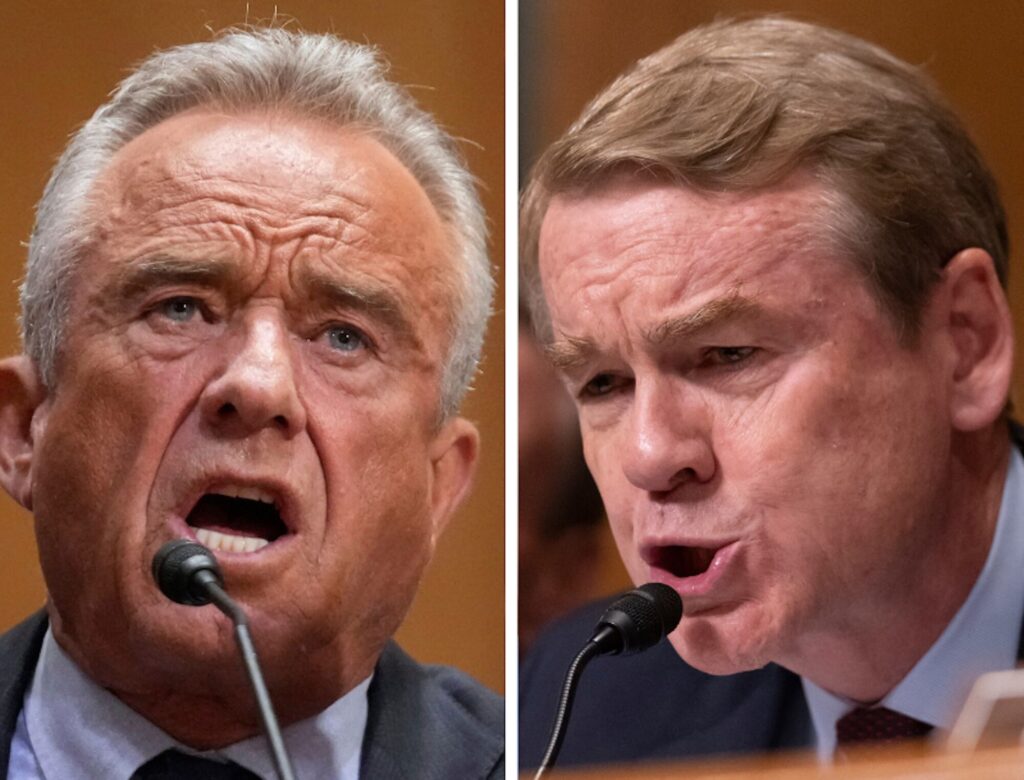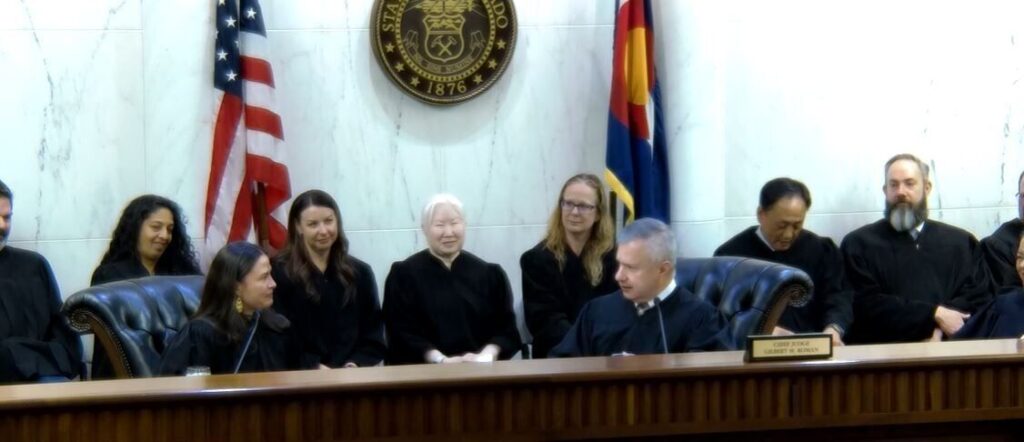Colorado River basin needs $75m to help farmers, ranchers conserve, say Bennet, Gardner
Colorado’s Michael Bennet and Cory Gardner are among six Western senators asking Agriculture Secretary Sonny Perdue to invest in programs to help farmers and ranchers conserve water along the Colorado River.
Agriculture uses 70 percent of the iconic river’s water supply, “and while farmers and ranchers continually innovate to improve yields, lower costs and conserve water, there is more to be gained,” Bennet, Gardner and four other senators said in a letter to Perdue, which Bennet’s office released Friday.
The Colorado River basin “has experienced 16 years of drought and is likely to suffer from significant supply and demand imbalances in the future.” the senators’ letter states.
For the first time since 2010, the program that’s part of the Watershed Protection and Flood Prevention Act, is set to receive funding in the next budget – $150 million to help states, local governments and tribes with shovel-ready or existing projects.
The Western senators want half that windfall, $75 million, to help farmers and ranchers along the Colorado River to boost efficiency, conserve water and still improve yields.
They add that they $75 million could “help correct this bias against western agriculture by addressing previously unfunded water infrastructure and drought contingency planning needs in our states.”
The full letter is available by clicking here.
The West’s most iconic river starts in Rocky Mountain National Park and flows through seven states, 11 national parks or monuments and before entering Mexico on its way to the Gulf of California. The conservation organization AmericanRivers.org calls it “the hardest working river in the West.”
“It’s a critical water supply for agriculture, industry, and municipalities, from Denver to Tijuana, which fuels a $1.4 trillion annual economy,” the conservation organization says. “Fishing, whitewater paddling, boating, backpacking, wildlife viewing, hiking, and myriad other recreational opportunities contribute some $26 billion alone.”
Bennet and Gardner were joined by Nevada’s Dean Heller andCatherine Cortez Masto; California’s Dianne Feinstein and Kamala Harris; and New Mexico’s Tom Udall and Martin Heinrich.
Bart Miller, the the healthy rivers program director for Boulder-based Western Resource Advocates, spoke to Colorado Politics over lunch Thursday about the need for collaborative efforts inside the Upper and Lower Colorado River basins to address troubling declines in water levels in both Lake Powell and Lake Mead.
The bipartisan letter speaks to the federal funds that are much-needed to support such projects that can help farmers and ranchers modernize infrastructure and conserve water, he said Friday, after Bennet released the letter.
“The Colorado River Basin is a perfect place to apply Watershed Act funds to support flexible water sharing agreements and irrigation efficiency improvements,” Miller said. “This bipartisan proposal would be a real shot in the arm, with long-term benefits for farmers, ranchers, and rivers, as well as water security for the 40 million people who rely on water from the Colorado River.”











